Mother dear, may I go downtown
Instead of out to play,
And march the streets of Birmingham
In a Freedom March today?"
"No, baby, no, you may not go,
For the dogs are fierce and wild,
And clubs and hoses, guns and jails
Aren't good for a little child."
"But, mother, I won't be alone.
Other children will go with me,
And march the streets of Birmingham
To make our country free."
"No, baby, no, you may not go,
For I fear those guns will fire.
But you may go to church instead
And sing in the children's choir."
She has combed and brushed her night-dark hair,
And bathed rose petal sweet,
And drawn white gloves on her small brown hands,
And white shoes on her feet.
The mother smiled to know that her child
Was in the sacred place,
But that smile was the last smile
To come upon her face.
For when she heard the explosion,
Her eyes grew wet and wild.
She raced through the streets of Birmingham
Calling for her child.
She clawed through bits of glass and brick,
Then lifted out a shoe.
"O, here's the shoe my baby wore,
But, baby, where are you?"
Instead of out to play,
And march the streets of Birmingham
In a Freedom March today?"
"No, baby, no, you may not go,
For the dogs are fierce and wild,
And clubs and hoses, guns and jails
Aren't good for a little child."
"But, mother, I won't be alone.
Other children will go with me,
And march the streets of Birmingham
To make our country free."
"No, baby, no, you may not go,
For I fear those guns will fire.
But you may go to church instead
And sing in the children's choir."
She has combed and brushed her night-dark hair,
And bathed rose petal sweet,
And drawn white gloves on her small brown hands,
And white shoes on her feet.
The mother smiled to know that her child
Was in the sacred place,
But that smile was the last smile
To come upon her face.
For when she heard the explosion,
Her eyes grew wet and wild.
She raced through the streets of Birmingham
Calling for her child.
She clawed through bits of glass and brick,
Then lifted out a shoe.
"O, here's the shoe my baby wore,
But, baby, where are you?"
Contributed by DonQuijote82 - 2011/9/22 - 10:47
Questa poesia fu messa in musica da Jerry Moore, oggi dimenticato singer songwriter afroamericano, attivo nel Greenwich Village di New York negli anni 60.
Il brano si trova in quello che credo sia il suo unico album, "Life Is A Constant Journey Home", pubblicato nel 1967.
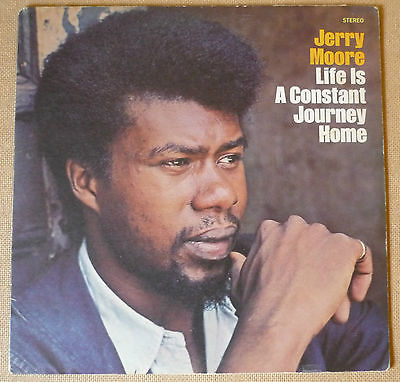
Il brano si trova in quello che credo sia il suo unico album, "Life Is A Constant Journey Home", pubblicato nel 1967.

B.B. - 2017/7/20 - 21:28
×
![]()
Note for non-Italian users: Sorry, though the interface of this website is translated into English, most commentaries and biographies are in Italian and/or in other languages like French, German, Spanish, Russian etc.

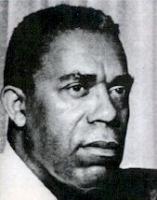

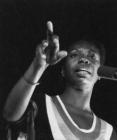
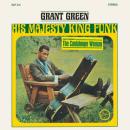
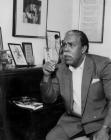


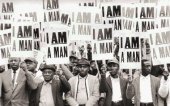
Dudley Randall’s Ballad of Birmingham depicts an African-American mother and her daughter conversing about a “Freedom March” in the streets of Birmingham. The young child asks permission to participate in the march, but her mother objects and describes the dangers that exist for the freedom marchers. Instead, she is sent to church, which is perceived to be a place of safety. Soon, after the daughter leaves for church, an explosion is heard. The mother unfortunately discovers that her daughter’s life has been taken from her in one violent act of racism. Consequently, the mother must accept reality and cope with the loss of her child.
Jerry Moore, 'Ballad of Birmingham' (1967)
This obscure folk masterpiece, adapted from a 1963 poem by Dudley Randall by Jerry Moore, imagines one of the young girls killed in the bombing of the 16th Street Baptist Church in Birmingham in September of '63. It'll drop you to your knees. Look no further for the kind of injustice that drove Dr. King.
Alabama
Birmingham Sunday
Talking Birmingham Jam
The Ballad of Birmingham
Ballad of Birmingham
We Are Alive